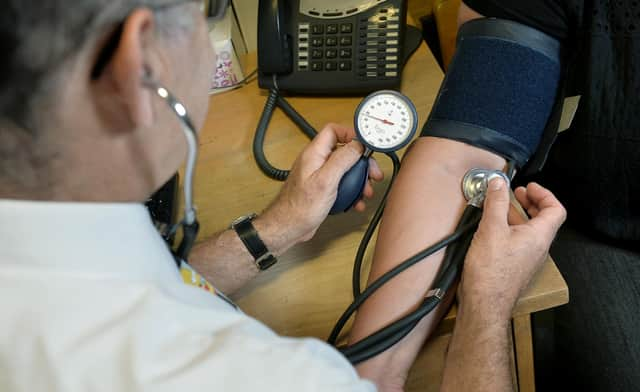More fully trained GPs in east Sussex – following government recruitment pledge


More fully trained GPs were working in east Sussex in November than 12 months earlier, new figures show.
The figures follow the Government's 2019 manifesto pledge to recruit 6,000 more GPs by 2025, with the number of GPs across England dwindling since 2015.
Advertisement
Hide AdAdvertisement
Hide AdThe British Medical Association trade union said the GP workforce is in "crisis", and accused the Government of recruiting thousands of non-GP staff as a cheaper alternative.
NHS Digital figures show 255 full-time-equivalent fully trained GPs were working at surgeries in the former NHS East Sussex CCG area in November – up from 244 the year before.
Nationally, there were 27,483 fully-trained GPs in England in November – a marginal increase from the 27,392 last November.
But in September 2015, the earliest available figures, there were 29,364, meaning almost 1,900 fully trained GPs have been lost over the last eight years.
Advertisement
Hide AdAdvertisement
Hide AdDr Julius Parker, deputy chair of the BMA's GP Committee for England, said: "There are no two ways about it, we are in the midst of a GP workforce crisis.
"We are having to do more work with fewer resources and are being stretched to the limit, leaving patients frustrated that they cannot always access the care they need."
Dr Parker said people living longer means more GPs are needed to "provide the level of care that people deserve and we want to deliver", but accused the Government of recruiting cheaper non-GP staff as an alternative.
He added: "The Government must prioritise GP recruitment and retention, otherwise the NHS will continue to haemorrhage doctors, putting patient care and safety at risk."
Advertisement
Hide AdAdvertisement
Hide AdIncluding the 9,825 GPs in the training grade, who are not yet fully qualified, as of November, the total number of GPs in England has risen by 1.8% in the last year to 37,308.
This is also above the 34,519 GPs registered in December 2019, when the Government announced its recruitment drive.
However, the number of practice staff excluding GPs has risen by 2.6% in the last year, outstripping GP recruitment.
In east Sussex, there were 313 full-time-equivalent doctors – up from 301 the year before.
Advertisement
Hide AdAdvertisement
Hide AdA Department of Health and Social Care spokesperson said: "There are more than 2,600 additional doctors and 34,000 extra staff in general practice, compared to 2019. Last year also saw the highest-ever number of doctors accepting a place on GP training.
"We have reached our target of 50 million additional general practice appointments several months ahead of schedule – that is equivalent to 43 additional appointments per practice per working day.
"Through our Primary Care Recovery Plan and Long Term Workforce Plan, we will continue to invest in our primary care workforce."